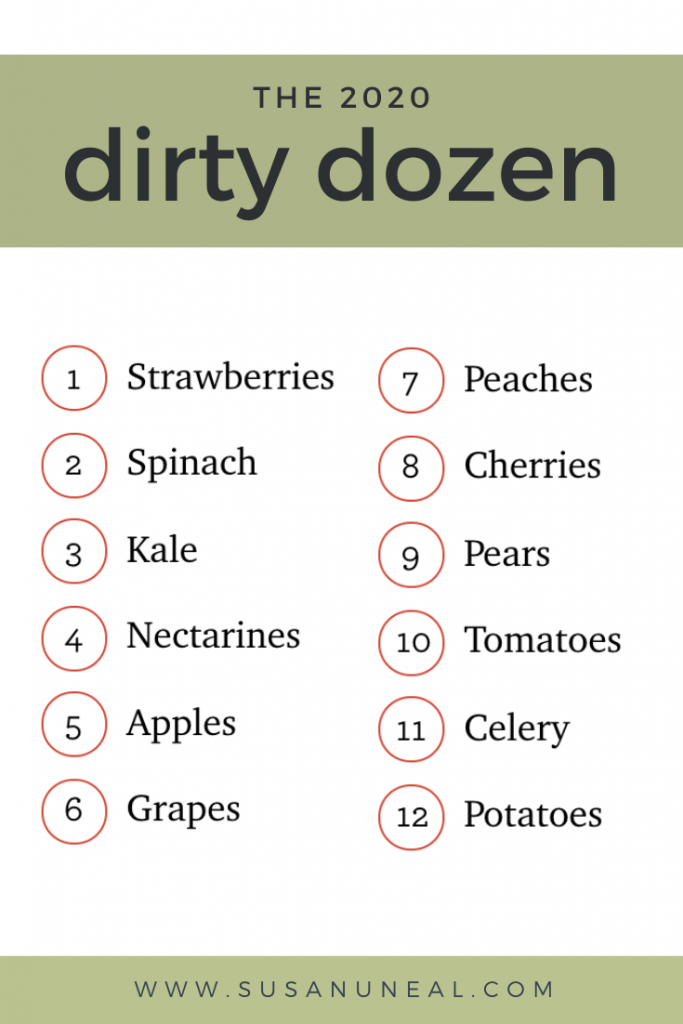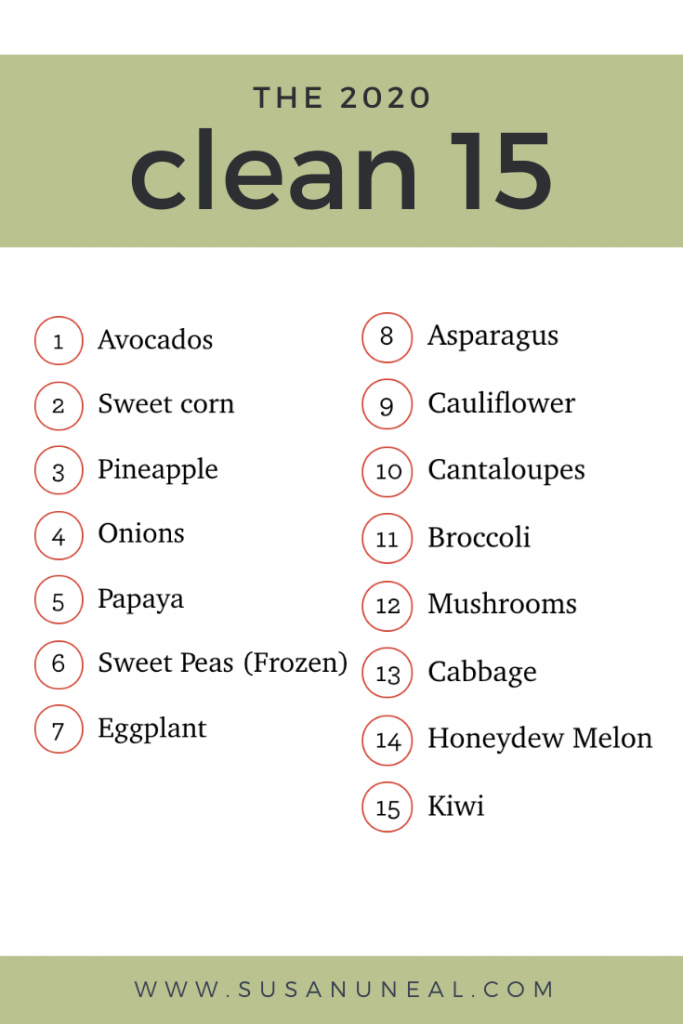Every spring the Environmental Working Group (EWG) creates the Dirty Dozen and Clean Fifteen produce list. The EWG is a non-profit organization dedicated to protecting human health and the environment. These lists are based upon the U. S. Department of Agriculture’s pesticide data. The Clean Fifteen list includes the varieties of produce that contained the least pesticide residue when tested. The Dirty Dozen foods are the ones with the highest concentration of pesticides. Researchers first wash and peel the produce before testing it. Even so, the Dirty Dozen produce items still contained pesticides. Therefore, the EWG recommends you buy organic fruits and vegetables from this list.
EWG’s 2020 Dirty Dozen™
- Strawberries
- Spinach
- Kale
- Nectarines
- Apples
- Grapes
- Peaches
- Cherries
- Pears
- Tomatoes
- Celery
- Potatoes
- Hot Peppers
EWG’s 2020 Clean Fifteen™
- Avocados
- Sweet Corn
- Pineapple
- Onions
- Papaya
- Sweet Peas Frozen
- Eggplant
- Asparagus
- Cauliflower
- Cantaloupe
- Broccoli
- Mushrooms
- Cabbage
- Honeydew Melon
- Kiwi
I use these two lists to help me determine which produce I buy organic. If it is on the Dirty Dozen list, I buy organic; if it is on the Clean Fifteen, I do not. Save the pins from this article on your phone for easy reference when grocery shopping.
If a vegetable is not on the list and has a thick skin that you do not eat, like a mango, you don’t necessarily need to purchase organic. However, if it’s thin-skinned and you eat the skin of the fruit, buy organic.
What concerns me is that grapes are on the Dirty Dozen list. So we should be buying organic wine too or else we may be drinking pesticide residue. Note that kale and spinach are still listed on the Dirty Dozen, so buy organic or grow your own lettuce in a container garden. I show you how to grow salad greens in my blog, Seven Steps to Create Your Own Vegetable Garden.
By Susan U. Neal RN, MBA, MHS




